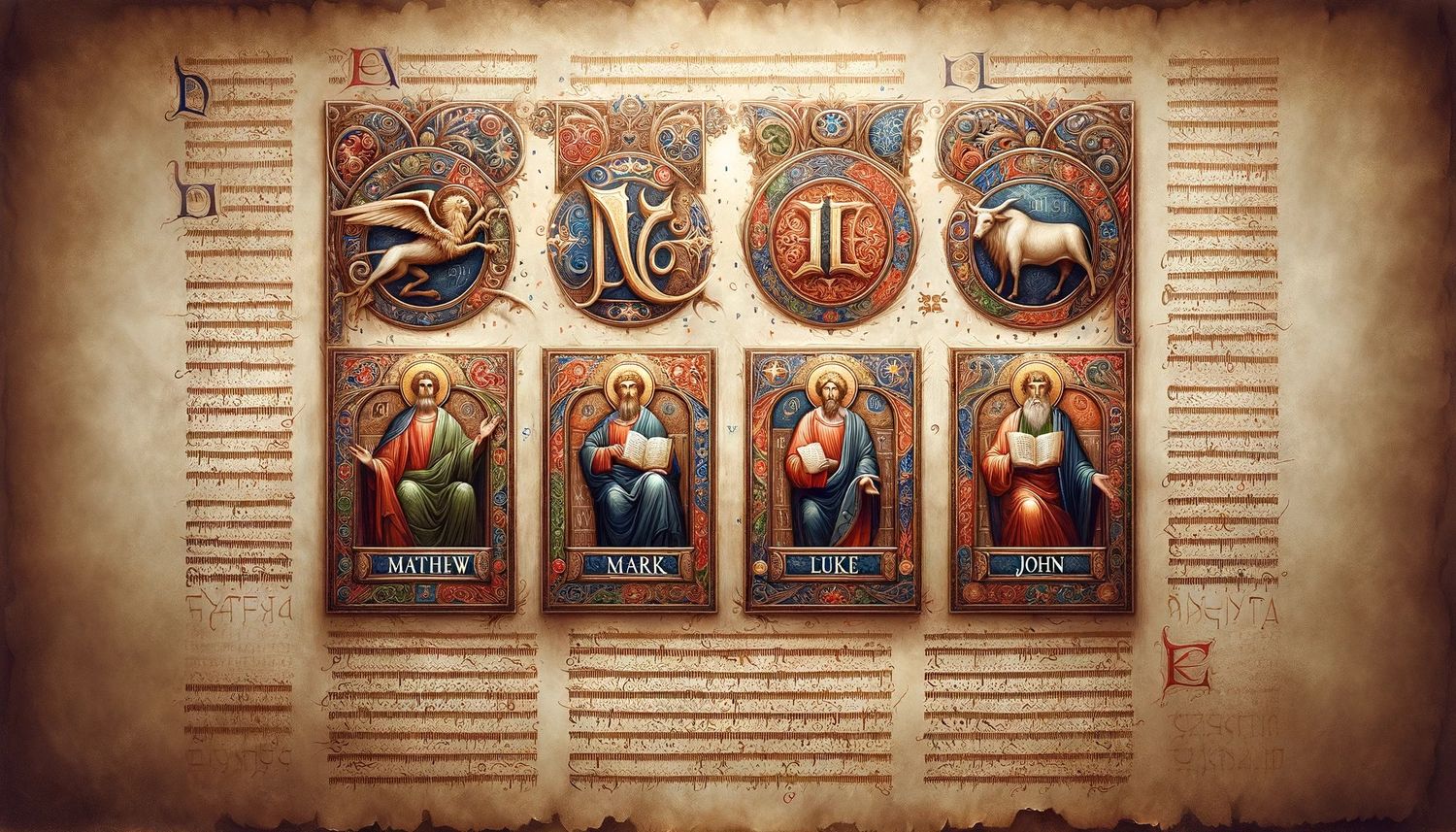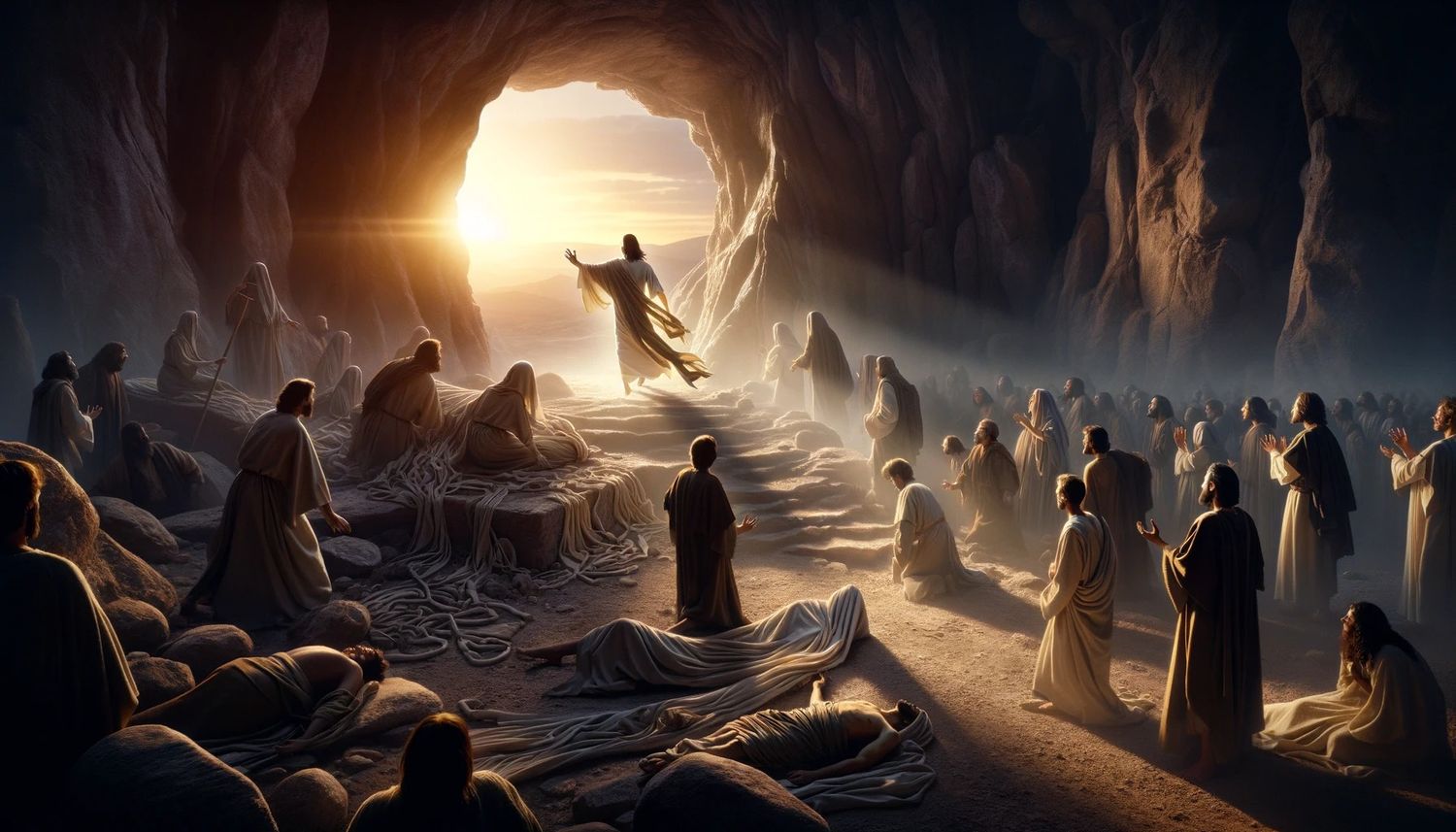Home>Christian Videos>Bible Stories>How Many Gospels Contain A Passion Narrative


Bible Stories
How Many Gospels Contain A Passion Narrative
Published: March 7, 2024
Ericka Andersen, an editor at Christian.net, expertly merges digital strategy with content creation, focusing on faith and societal issues. Her communication skills enhance the platform's engaging narratives, fostering meaningful dialogue on belief's impact on society.
Discover the passion narratives in the Bible with insights on how many gospels contain this powerful and moving story. Explore the significance of these Bible stories.
(Many of the links in this article redirect to a specific reviewed product. Your purchase of these products through affiliate links helps to generate commission for Christian.net, at no extra cost. Learn more)
Table of Contents
Introduction
How many gospels contain a passion narrative? The passion narrative is a significant part of the gospels, depicting the events leading up to and including the crucifixion of Jesus. It is a powerful and emotional account that holds great importance in Christian faith. In this article, we will explore each of the four gospels – Matthew, Mark, Luke, and John – to understand how the passion narrative is portrayed in each of them. Each gospel offers a unique perspective on the life and teachings of Jesus, and the passion narrative is a central element in each of these accounts. Let's delve into the rich and profound depictions of the passion narrative in the gospels and gain a deeper understanding of its significance in the Christian faith.
Read more: How Many Words Are In The Gospels
The Gospel of Matthew and the Passion Narrative
The Gospel of Matthew presents a detailed and comprehensive account of the passion narrative. The narrative begins with Jesus' entry into Jerusalem, where he is hailed as the Messiah by the crowds. This triumphal entry sets the stage for the events that will unfold. Matthew's gospel emphasizes Jesus' role as the fulfillment of Old Testament prophecies, portraying him as the long-awaited Messiah. The passion narrative in Matthew includes the Last Supper, where Jesus institutes the Eucharist, and the agony in the Garden of Gethsemane, where Jesus prays to God before his arrest.
The betrayal of Jesus by Judas, his trial before the religious leaders, and his crucifixion are all vividly depicted in Matthew's gospel. The gospel also highlights the political dimension of Jesus' crucifixion, emphasizing the role of Pontius Pilate, the Roman governor, in the events leading to Jesus' death. The narrative culminates in the resurrection of Jesus, affirming the central belief of Christianity in the triumph of life over death. Matthew's portrayal of the passion narrative underscores the fulfillment of divine purpose and the establishment of a new covenant through the sacrifice of Jesus.
- The Triumphal Entry into Jerusalem
- Emphasis on Jesus as the Messiah
- Last Supper and the Eucharist
- Agony in the Garden of Gethsemane
- Betrayal by Judas and Trial before Religious Leaders
- Crucifixion and Resurrection
Matthew's gospel presents the passion narrative as a pivotal moment in the divine plan of salvation, emphasizing the fulfillment of prophecy and the establishment of a new covenant through the sacrificial death and resurrection of Jesus.
The Gospel of Mark and the Passion Narrative
The Gospel of Mark provides a concise yet powerful account of the passion narrative. Mark's narrative begins with Jesus' entry into Jerusalem, echoing the triumphal entry depicted in Matthew's gospel. The gospel emphasizes Jesus' role as the suffering servant, portraying him as the one who came to serve and give his life as a ransom for many. Mark's portrayal of the passion narrative is marked by a sense of urgency and immediacy, with a focus on the actions and teachings of Jesus during the final days of his life.
The Last Supper and the betrayal of Jesus by Judas are depicted in Mark's gospel, highlighting the intimate and poignant moments leading up to Jesus' arrest. The trial before the religious leaders and the Roman governor, Pilate, is presented with brevity yet profound significance. Mark's gospel vividly portrays the crucifixion of Jesus, emphasizing the mockery and scorn he endured at the hands of those who crucified him.
The narrative culminates in the dramatic account of Jesus' death and burial, leaving a sense of solemnity and awe. Mark's gospel ends with the discovery of the empty tomb, pointing to the central belief in the resurrection of Jesus. The passion narrative in Mark's gospel underscores the selfless sacrifice of Jesus and the profound impact of his death and resurrection on the course of human history.
- Echo of Triumphal Entry
- Emphasis on Jesus as the Suffering Servant
- Last Supper and Betrayal by Judas
- Trial before Religious Leaders and Pilate
- Vivid Portrayal of Crucifixion
- Discovery of the Empty Tomb
Mark's gospel presents the passion narrative as a testament to the selfless sacrifice of Jesus and the transformative power of his death and resurrection.
The Gospel of Luke and the Passion Narrative
The Gospel of Luke offers a unique perspective on the passion narrative, emphasizing themes of compassion, forgiveness, and salvation. Luke's narrative begins with Jesus' journey to Jerusalem, where he is determined to fulfill his mission despite knowing the suffering that awaits him. The gospel portrays Jesus as the embodiment of divine mercy and compassion, reaching out to the marginalized and offering hope to the oppressed.
The Last Supper in Luke's gospel is marked by Jesus' profound act of humility, as he washes the feet of his disciples, setting an example of servant leadership. The betrayal of Jesus by Judas and the subsequent arrest in the Garden of Gethsemane are depicted with a sense of solemnity and divine purpose. Luke's gospel emphasizes Jesus' unwavering commitment to his mission, even in the face of betrayal and abandonment by his closest followers.
The trial before the religious leaders and the Roman authorities is presented as a moment of unjust condemnation, highlighting the innocence of Jesus in the face of false accusations. The gospel vividly portrays the crucifixion of Jesus, emphasizing his words of forgiveness and compassion even in his moments of agony. The narrative culminates in the powerful scene of Jesus' death, with the profound declaration, "Father, into your hands I commit my spirit."
Luke's gospel also includes the moving account of the encounter on the road to Emmaus, where the risen Jesus reveals himself to his disciples, bringing a message of hope and redemption. The passion narrative in Luke's gospel underscores the transformative power of Jesus' sacrifice and the universal offer of forgiveness and salvation to all humanity.
- Emphasis on Compassion and Mercy
- Last Supper and Act of Humility
- Betrayal by Judas and Arrest in the Garden
- Unwavering Commitment to Mission
- Trial and Unjust Condemnation
- Crucifixion and Words of Forgiveness
- Encounter on the Road to Emmaus
Luke's gospel presents the passion narrative as a profound demonstration of divine compassion and the universal offer of redemption and forgiveness through the sacrifice and resurrection of Jesus.
The Gospel of John and the Passion Narrative
The Gospel of John presents a unique and profound portrayal of the passion narrative, emphasizing the divine nature of Jesus and the significance of his sacrificial death. John's narrative begins with a cosmic perspective, highlighting the eternal pre-existence of Jesus as the Word of God. The gospel emphasizes the divine identity of Jesus, portraying him as the embodiment of God's love and grace. The passion narrative in John's gospel is intricately woven into the larger theological framework of salvation and redemption.
The Last Supper in John's gospel is marked by the powerful act of Jesus washing the feet of his disciples, symbolizing the ultimate expression of servanthood and love. The gospel emphasizes the intimate and profound teachings of Jesus during this final gathering with his disciples, including the promise of the coming of the Holy Spirit and the unity of believers. The betrayal of Jesus by Judas and the agony in the Garden of Gethsemane are depicted with a sense of divine resolve and purpose, as Jesus willingly embraces the path that lies ahead.
John's gospel presents the trial before the religious leaders and the Roman governor, Pilate, as a cosmic confrontation between the forces of darkness and the light of divine truth. The gospel vividly portrays the crucifixion of Jesus, emphasizing the profound significance of his sacrificial death as the culmination of God's redemptive plan for humanity. The narrative culminates in the powerful declaration of Jesus, "It is finished," signifying the completion of his mission to reconcile humanity to God.
The gospel of John also includes the poignant scenes of Jesus' interactions with his mother, Mary, and the beloved disciple at the foot of the cross, underscoring the deep emotional and spiritual dimensions of the crucifixion. The narrative concludes with the transformative encounter of Jesus' resurrection, bringing a message of hope and new life to his followers. John's gospel presents the passion narrative as the ultimate demonstration of God's love for humanity and the means through which all people can find reconciliation and eternal life.
- Emphasis on the Divine Identity of Jesus
- Symbolism of the Last Supper
- Cosmic Confrontation in the Trial
- Profound Significance of the Crucifixion
- Emotional and Spiritual Dimensions of the Crucifixion
- Transformative Encounter of Resurrection
Read more: How Many Parables Are In The Gospels
Conclusion
In conclusion, each of the four gospels – Matthew, Mark, Luke, and John – offers a distinct and profound portrayal of the passion narrative. The narrative of Jesus' suffering, crucifixion, and resurrection holds central significance in the Christian faith, serving as a testament to the selfless sacrifice and redemptive love of Jesus. The gospels present a rich tapestry of theological, emotional, and spiritual dimensions, emphasizing the universal message of hope, forgiveness, and salvation through the life, death, and resurrection of Jesus. The passion narrative stands as a powerful reminder of the enduring impact of Jesus' life and teachings, inspiring believers to embrace the transformative power of faith and the promise of eternal life. Each gospel contributes to a comprehensive understanding of the significance of the passion narrative, inviting readers to reflect on the profound implications of Jesus' sacrifice and the hope it offers to all humanity.














